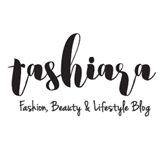The natural anti-ageing wonder outshining retinol

In the ever-evolving world of skincare, every once in a while, a new ingredient makes its entrance and takes the beauty world by storm. Over the past few years, bakuchiol has emerged as a frontrunner in the anti-ageing arena, positioning itself as a natural alternative to the much-lauded retinol. But what exactly is bakuchiol, and how does it fare when compared to its more renowned counterpart? Let's dive in.
What is Bakuchiol?
Bakuchiol is a natural compound extracted from the seeds and leaves of the babchi plant, which is native to India and has been traditionally used in Ayurvedic and Chinese medicine for centuries. Only recently has it gained popularity in Western skincare for its anti-ageing properties.
Bakuchiol vs Retinol: A Comparison
Irritation Potential: The most significant advantage of bakuchiol over retinol is its gentle nature. Retinol, while effective, is notorious for causing skin irritations like redness, peeling, and increased sensitivity. Bakuchiol offers similar benefits without these side effects, making it suitable even for those with sensitive skin.
Natural Origin: As the skincare world drifts towards clean and natural ingredients, bakuchiol fits right in. Being a plant-derived compound, it aligns with the preferences of those seeking natural alternatives.
Stability: Unlike retinol, which can degrade and become ineffective when exposed to sunlight and air, bakuchiol is more stable. This stability means it can be used during the daytime without any worries.
Effectiveness: Studies have shown that bakuchiol can stimulate collagen production, reduce the appearance of fine lines and wrinkles, and improve skin elasticity, much like retinol. Some research even suggests that bakuchiol can tackle acne, dark spots, and uneven skin tone, expanding its range of benefits.
Compatibility with Other Products: Retinol can sometimes react adversely when paired with certain ingredients like vitamin C. Bakuchiol doesn't have these constraints, allowing for more flexibility in one's skincare routine.
Should You Make the Switch?
While bakuchiol is undoubtedly a promising ingredient, it doesn't necessarily mean everyone should swap out retinol immediately. Here's what to consider:
Skin Type: If you have sensitive skin or have experienced irritation with retinol in the past, bakuchiol may be a better choice for you.
Ethical Considerations: For those inclined towards vegan and cruelty-free products, bakuchiol-based products often align with these values.
Personal Preference: Some people may simply prefer the feel, texture, or results of one product over the other.
Conclusion Bakuchiol's rise in the skincare world is a testament to its efficacy and benefits. As a natural, gentle alternative to retinol, it offers impressive anti-ageing results without the associated drawbacks. While retinol will always have its place in the skincare realm, bakuchiol has proven to be a worthy contender and a game-changer for many.











